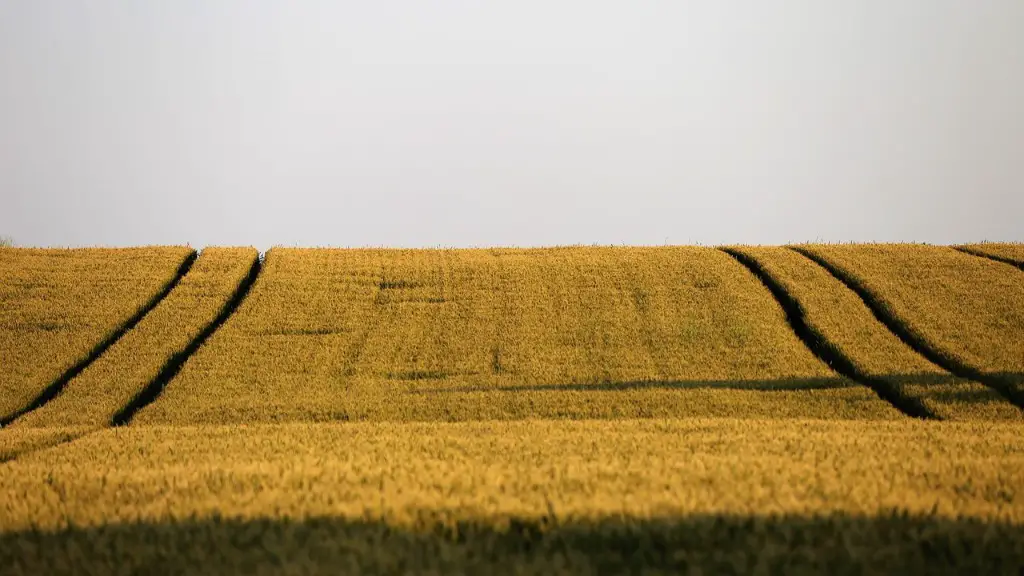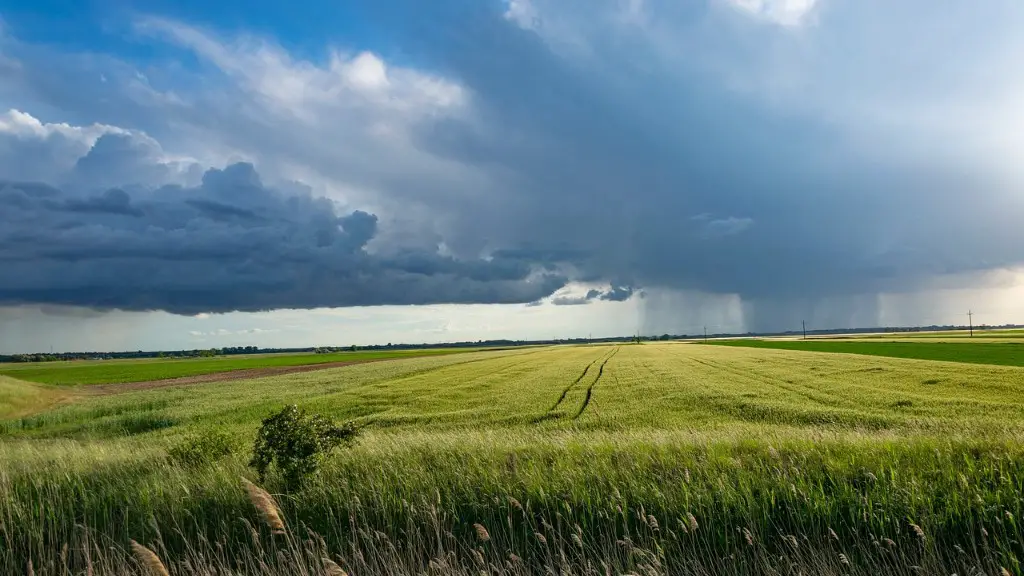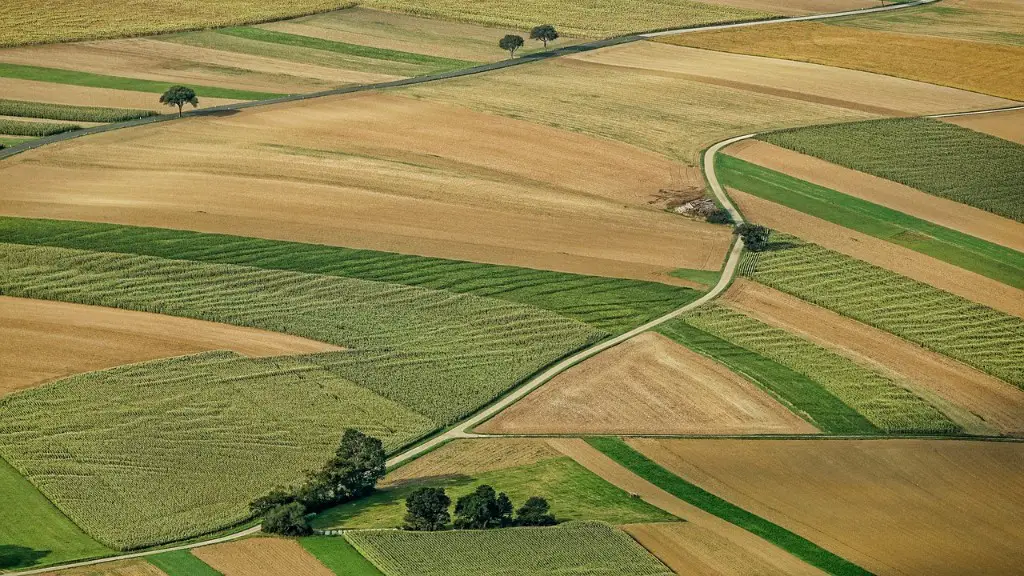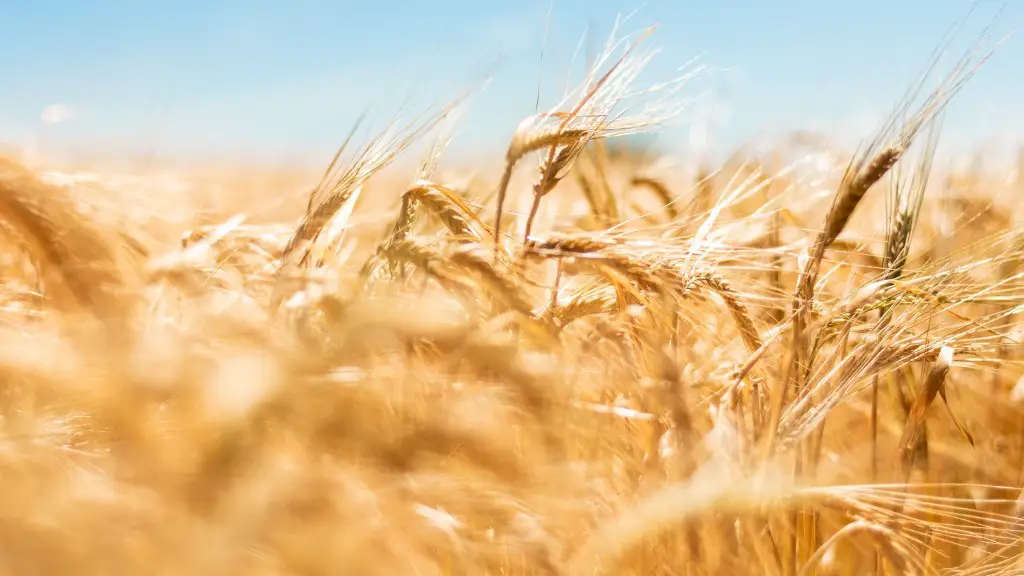The origins of agriculture can be traced back to some of the first human civilizations in Mesopotamia and Egypt. In these early cultures, people began to domesticate plants and animals, and they developed new technologies for farming. Agriculture allowed for the growth of cities and the rise of civilizations. It also helped to transform the way people lived and the way they understood the world around them. Agriculture has played a significant role in human history, and it continues to shape the world today.
The advent of agriculture changed the world in a number of ways. First, it allowed for the domestication of plants and animals, which led to the development of civilizations. Agriculture also allowed for the growth of cities and the rise of trade and commerce. Additionally, it led to the development of new technologies and the spread of new ideas.
How did the Agricultural Revolution change our world?
The agricultural revolution was a time of great change for humans. It led to a more sedentary lifestyle and a dependence on the land for food. It also resulted in inequality, as some people had access to more land and resources than others. Additionally, the agricultural revolution led to a decline in nutrition, as people relied more on domesticated animals for food. This also resulted in an increase in infectious diseases, as people were in close contact with these animals.
The agricultural industry is vital to the global economy and ecosystem. It employs more than one billion people and generates over $13 trillion dollars worth of food annually. Pasture and cropland occupy around 50 percent of the Earth’s habitable land and provide habitat and food for a multitude of species. The industry is also a leading contributor to greenhouse gas emissions, water pollution, and deforestation. Despite these challenges, the agricultural industry is essential to meeting the needs of a growing population. With continued innovation and sustainability efforts, the agricultural industry can continue to thrive for years to come.
How did agriculture change life
The development of agriculture allowed for denser populations and more permanent settlements. This, in turn, led to the development of cities. The abundance of food produced by agriculture allowed people to pursue other interests, and the growth of cities provided opportunities for the development of art, literature, and science.
When early humans began farming, they were able to produce enough food that they no longer had to migrate to their food source. This meant they could build permanent structures, and develop villages, towns, and eventually even cities. Closely connected to the rise of settled societies was an increase in population.
What are 3 results of the Agricultural Revolution?
The Agricultural Revolution was a period of unprecedented increase in agricultural production in Britain. This was due to new agricultural practices such as crop rotation, selective breeding, and a more productive use of arable land. These innovations allowed for a more efficient use of resources, which led to increased production and a higher standard of living for the British people.
The development of agriculture is called a revolution because it has had such a radical impact on human society. Agriculture has allowed for the invention of the first cities, the growth of the human population, and the development of industry. Without agriculture, none of these things would be possible.
How did agriculture help the economy?
It is clear that agriculture, food, and related industries are a significant part of the United States economy. They contribute a large percentage of GDP and are a major source of employment. These industries are also important to the country’s trade balance and provide a significant amount of export revenue.
The transition to an agricultural lifestyle allowed humans to establish permanent settlements and develop complex social structures. The domestication of plants and animals provided a reliable source of food, which allowed for the growth of population centers. The development of agricultural communities allowed for the domestication of plants and animals, which in turn led to the growth of human settlements and the establishment of complex social structures.
What are the impacts of agriculture to the society
There is no denying that agriculture takes a toll on the environment. The result is that agriculture globally exerts increasing pressure on the land and water resources of the earth, which often results in land degradation (such as soil erosion and salinization), and eutrophication. Agriculture is also associated with greenhouse gas emissions. Although there are many ways to mitigate the damaging effects of agriculture on the environment, it is important to be aware of the issue in order to make more sustainable choices.
Agriculture is the backbone of any country’s economy. It not only provides food and raw materials, but also employs a large percentage of the population. Agriculture is a critical part of the entire life of a given economy and plays a vital role in its development.
Why was agriculture a turning point in history?
Farming has been a crucial part of human society for thousands of years. It has allowed us to grow all the food we need in one place, with a much smaller group of people. This has led to massive population growth, creating cities and trade.
Agriculture provides most of the world’s food and fabrics. Cotton, wool, and leather are all agricultural products. Agriculture also provides wood for construction and paper products. These products, as well as the agricultural methods used, may vary from one part of the world to another.
What were the results of agricultural changes
The Agricultural Revolution was a period of unprecedented growth in agricultural production and technological advancement. This period led to increased population growth and new agricultural practices, including rural-to-urban migration, development of a coherent and loosely regulated agricultural market, and more.
The Agricultural Revolution of the 18th century was a pivotal moment in British history that paved the way for the Industrial Revolution. New farming techniques and improved livestock breeding led to amplified food production, which allowed for a spike in population and increased health. The new farming techniques also led to an enclosure movement, which resulted in more efficient land use and further increased food production. The Agricultural Revolution was a crucial stepping stone in Britain’s journey to becoming a leading industrial nation.
What are the 3 most significant events in agriculture?
1831 was an eventful year for agricultural technology. Cyrus McCormick invented the grain reaper, a machine that revolutionized how grain was harvested. Just a few years later, in 1836, the grain combine was patented. And in 1837, John Deere began manufacturing plows. These inventions changed the way farmers worked, making it easier and more efficient to grow and harvest crops.
The Agricultural Revolution was a period of experimentation with new crops and new methods of crop rotation. These new techniques gave soil time to replenish nutrients, leading to stronger crops and better agricultural output. Advancements in irrigation and drainage further increased productivity. Today, these techniques are used all over the world to produce food for billions of people.
Warp Up
Agriculture has changed the world in a number of ways. One of the most significant ways is that it has allowed for the development of civilizations. Agriculture allowed for the domestication of plants and animals, which led to the development of sedentary lifestyles and the growth of cities. Agriculture also allowed for the development of trade and commerce, which led to the growth of civilizations.
The Agricultural Revolution was a period of dramatic technological change in agriculture that took place between the 18th and early 19th centuries. The changes included the adoption of new crop plants such as potatoes and maize, the adoption of new farm animals such as sheep and cattle, and the adoption of new methods of crop rotation. These changes allowed for a more efficient use of land and labor, and they greatly increased the productivity of agriculture. The Agricultural Revolution had a profound impact on the world, and it is one of the most significant events in human history.




